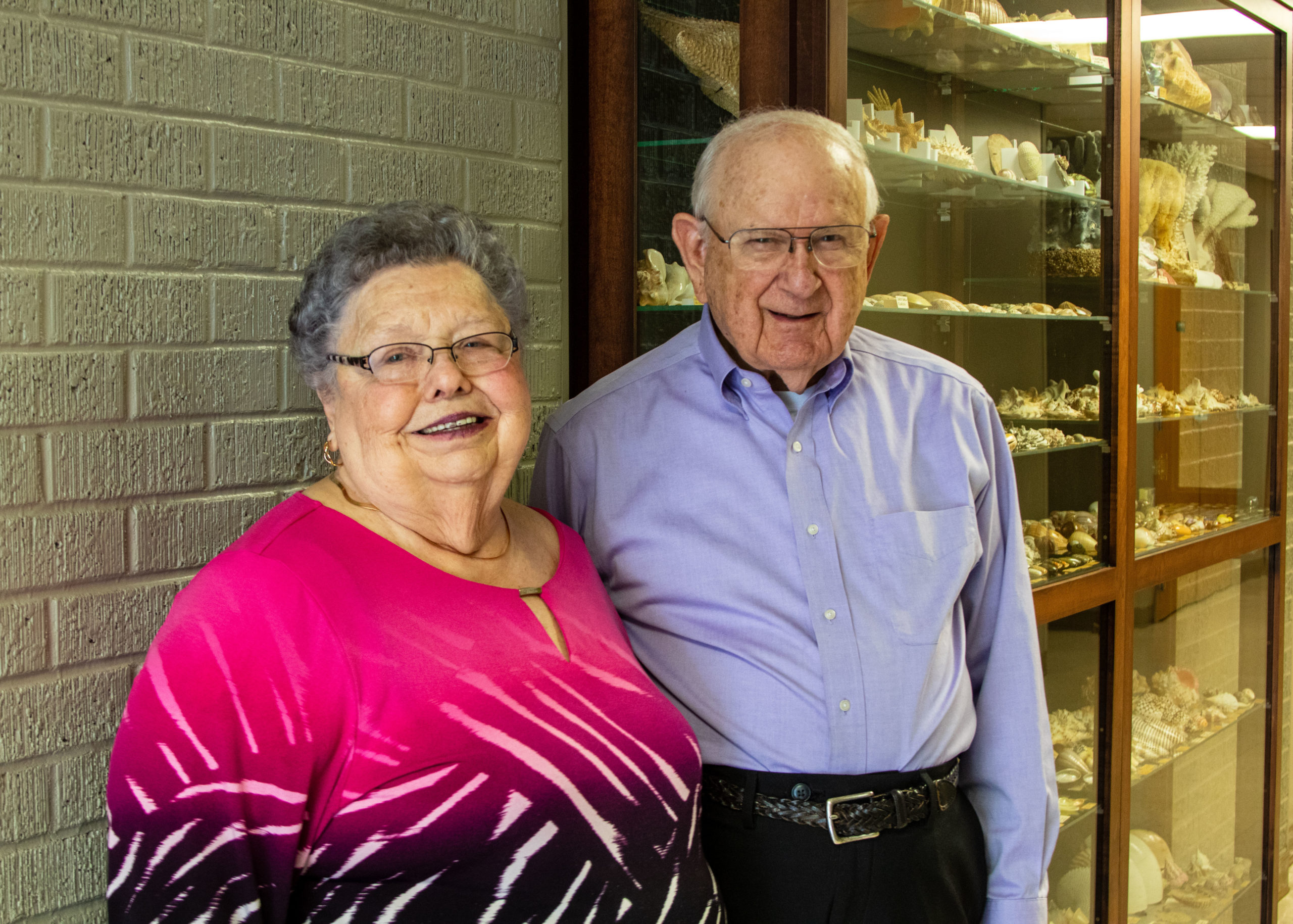Kenneth Flynn of Paragould, Ark., has spent more than 75 years of his life collecting seashells and other aquatic life from around the world. The result, known as the Flynn Collection, is a wide-ranging assortment of 600 marine specimens now on permanent display at Williams Baptist University.
Flynn and his wife, Carol, recently donated the collection to WBU, along with two new cases in which the shells are displayed.
“I started collecting seashells in California in 1942 when my family was living about 20 miles north of San Francisco on Highway 1,†Flynn recalled. “The Pacific Ocean was 500 to 600 yards from our house. This gave me access to the beach whenever my mom would let me go. So, I went often and walked along the beach picking up whatever looked interesting.â€
His hobby became a lifelong passion, and as the Flynns had the opportunity to travel around the world, collecting shells was always a part of the itinerary.
“I have been fortunate enough to have traveled to England, Ireland, France, Italy, Hawaii, Japan, Mexico and some Caribbean ports, as well as up and down the east coast of the U.S., the west coast of Florida and all the Gulf States,†he said. “When I traveled, it was always my intent to walk along with the seashore or purchase seashells whenever possible.â€
In addition to building an impressive collection, Flynn cataloged his finds with great care. Nearly all the items in the Flynn Collection are labeled with the species and place of origin, and that makes the collection all the more valuable to the university, according to Dr. Ann Paterson, the Nell Mondy Chair of Natural Sciences at WBU.
“The Flynn Collection of seashells and related materials is a remarkable assemblage of carefully-identified specimens based on years of dedicated work,†said Paterson. “It can be very challenging to identify these specimens, but Mr. Flynn has carefully researched all of them and therefore we have the specimens and careful documentation for each one. This collection is a valuable resource to show students the diversity of sea life and also to teach them about the challenges of identifying these species.â€
The collection is particularly well suited for the WBU natural sciences department, which has been taking students to Florida during the summer months to research plastic pollution in marine environments. The Williams biology students work in collaboration with A Rocha, a Christian conservation organization.
“This collection represents a huge amount of work that has resulted in a wonderful teaching resource that we hope will be appreciated by students for years to come and that will enhance their appreciation of the value of marine natural resources and of our plastics research program,†Paterson said.
Flynn said there were several reasons he chose to donate his collection to WBU. The Flynns are active members of West View Baptist Church in Paragould and have known a number of trustees and staff members at Williams. One of their sons attended the school, as well.
“But mostly,†he said, “it was my hope to interest the students in the wonder, complexity and beauty of God’s creation in the seas that cover more than 70 percent of the Earth’s surface and contain more than 96 percent of the earth’s total water.â€
The Flynn Collection is now on permanent display in the Sloan Center for Science & Professional Studies at WBU.
Williams is a private, Christian university in Walnut Ridge.
